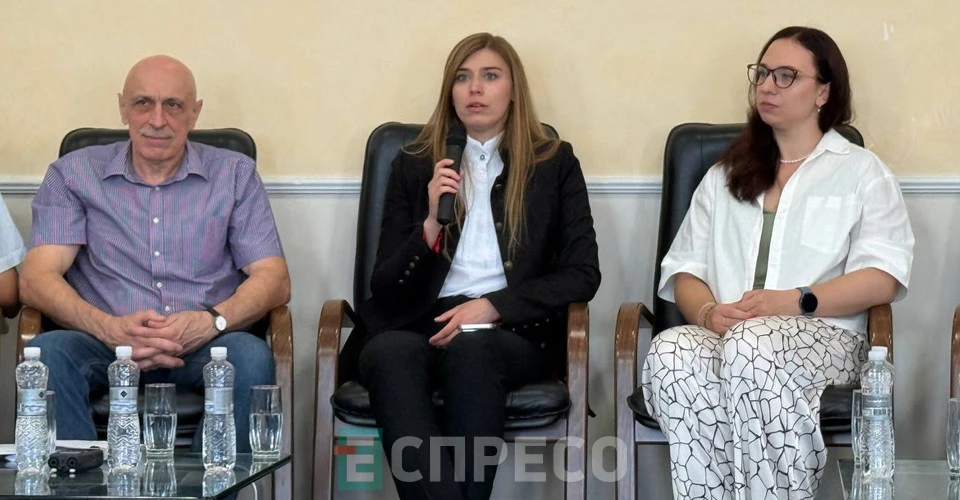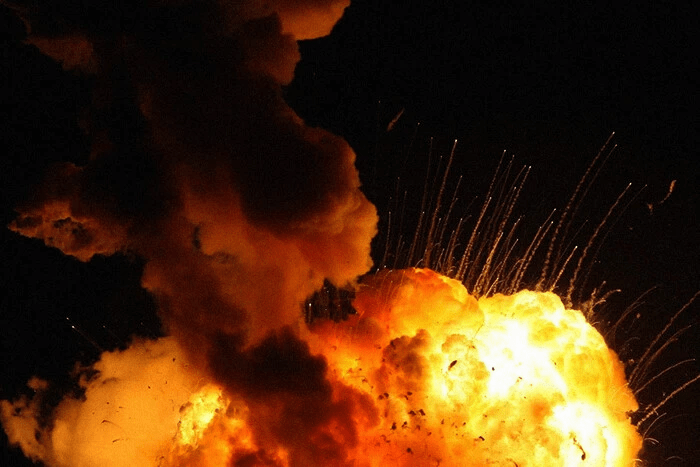European Court of Human Rights finds Russia guilty of systematic crimes against Ukraine
global.espreso.tv
Wed, 16 Jul 2025 17:49:00 +0300

This was discussed during the panel: "The ECHR Decision in the Inter-State Case 'Ukraine and the Netherlands v. Russia' and Its Significance for the Protection of Victims of Russian Aggression" in Kyiv. Espreso correspondent Nataliia Starepravo reported from the event.Margarita Sokorenko, the Commissioner for the European Court of Human Rights, noted that this is an important decision by the court, and it is being called historic."But it is important to remember that the basis for this proceeding is the tragic history of independent Ukraine. It is the suffering of our citizens, the egregious crimes of the Russians. It is not just a matter of isolated crimes by the Russian Federation, but an entire system of violations by Russia against Ukraine. The European Court clearly indicated that Russia is responsible for violations since 2014. It also emphasized that Russian aggression began with the annexation of Crimea and expanded to the seizure of the Luhansk and Donetsk regions and the full-scale invasion," she emphasized.  The European Court highlighted unprecedented points—these are political messages. In particular, it clearly took into account the context, as requested by the Ukrainian side, and also emphasized that Russia's policy and rhetoric are clearly planned, meaning it is an entire strategy—the destruction of Ukraine as a state, a subject of international law. The Court stated that Russia poses a threat to the European continent, and the mentioned crimes of Russia are the largest-scale crimes since World War II that the European Court has considered.Oleksandr Pavlichenko, Executive Director of the Ukrainian Helsinki Human Rights Union, added that the European Court of Human Rights, in its decisions, has distinguished between different approaches to the qualification of facts, particularly in the field of human rights.He noted that the European Court has always distanced itself from military conflicts, avoiding combining these elements in its decisions, as was the case with Russia and Georgia. At the same time, the issue of war and the assessment of aggression in this decision found a thoroughly grounded combination. The strengthening of this case was also due to the involvement of 26 states.Analyst and coordinator of lawyers at the Ukrainian Legal Advisory Group (ULAG), Alina Pavliuk, added that as a result of working through the ECHR decision, all issues concerning Ukraine were accumulated. These are more than 170 criminal proceedings.One of the key elements of the court's findings is the statement of how the conflict developed on the territory of Ukraine. These findings are lacking in our educational court decisions. These arguments and facts can be incorporated into the national context of justice regarding crimes against humanity, as this article has appeared only recently.Mykhailo Tarakhkalo, Director of Strategic Affairs at the Ukrainian Helsinki Human Rights Union, focused on the administrative practices established by the ECHR."The ECHR concluded that there was consistent activity supported by the top leadership of the Russian Federation, and this activity was aimed at the violations established in the cases. These are not isolated incidents, but a certain system. And the statement about this may have serious consequences for other bodies," he noted.About the violations established by the ECHRThe Court established a number of violations, including the right to life, and Russia's responsibility for the downing of flight MH17 over Donbas. According to the court's findings, Russian agents, through their active actions, shot down the plane, and Russia bears responsibility for the deaths. The decision states that the downing was essentially an attempt to evade responsibility and to confuse the investigation. The Court revealed all the facts and ruled that Russia's goal was to obstruct an independent investigation.The European Court also paid attention to interaction with the relatives of the victims. This includes the handling of bodies, when videos with the bodies were circulated online. The court's findings also mention the behavior of the Russian authorities, including the refusal to cease hostilities to properly document evidence. Much attention was given to Russia's disinformation campaigns.The court also established Russia's responsibility for the existence of practices of executing civilians, mass acts of torture, violence, and other actions prohibited by the convention.The ECHR investigated Russia's crimes up to September 16, 2022—the day Russia left the Council of Europe. After that day, the ECHR can no longer investigate Russia's crimes; this will now be done by another institution.On July 9, the European Court of Human Rights in Strasbourg ruled that Russia violated international law in Ukraine. It also recognized that Moscow is responsible for the downing of Malaysia Airlines flight MH17 (Boeing-777) in 2014.
The European Court highlighted unprecedented points—these are political messages. In particular, it clearly took into account the context, as requested by the Ukrainian side, and also emphasized that Russia's policy and rhetoric are clearly planned, meaning it is an entire strategy—the destruction of Ukraine as a state, a subject of international law. The Court stated that Russia poses a threat to the European continent, and the mentioned crimes of Russia are the largest-scale crimes since World War II that the European Court has considered.Oleksandr Pavlichenko, Executive Director of the Ukrainian Helsinki Human Rights Union, added that the European Court of Human Rights, in its decisions, has distinguished between different approaches to the qualification of facts, particularly in the field of human rights.He noted that the European Court has always distanced itself from military conflicts, avoiding combining these elements in its decisions, as was the case with Russia and Georgia. At the same time, the issue of war and the assessment of aggression in this decision found a thoroughly grounded combination. The strengthening of this case was also due to the involvement of 26 states.Analyst and coordinator of lawyers at the Ukrainian Legal Advisory Group (ULAG), Alina Pavliuk, added that as a result of working through the ECHR decision, all issues concerning Ukraine were accumulated. These are more than 170 criminal proceedings.One of the key elements of the court's findings is the statement of how the conflict developed on the territory of Ukraine. These findings are lacking in our educational court decisions. These arguments and facts can be incorporated into the national context of justice regarding crimes against humanity, as this article has appeared only recently.Mykhailo Tarakhkalo, Director of Strategic Affairs at the Ukrainian Helsinki Human Rights Union, focused on the administrative practices established by the ECHR."The ECHR concluded that there was consistent activity supported by the top leadership of the Russian Federation, and this activity was aimed at the violations established in the cases. These are not isolated incidents, but a certain system. And the statement about this may have serious consequences for other bodies," he noted.About the violations established by the ECHRThe Court established a number of violations, including the right to life, and Russia's responsibility for the downing of flight MH17 over Donbas. According to the court's findings, Russian agents, through their active actions, shot down the plane, and Russia bears responsibility for the deaths. The decision states that the downing was essentially an attempt to evade responsibility and to confuse the investigation. The Court revealed all the facts and ruled that Russia's goal was to obstruct an independent investigation.The European Court also paid attention to interaction with the relatives of the victims. This includes the handling of bodies, when videos with the bodies were circulated online. The court's findings also mention the behavior of the Russian authorities, including the refusal to cease hostilities to properly document evidence. Much attention was given to Russia's disinformation campaigns.The court also established Russia's responsibility for the existence of practices of executing civilians, mass acts of torture, violence, and other actions prohibited by the convention.The ECHR investigated Russia's crimes up to September 16, 2022—the day Russia left the Council of Europe. After that day, the ECHR can no longer investigate Russia's crimes; this will now be done by another institution.On July 9, the European Court of Human Rights in Strasbourg ruled that Russia violated international law in Ukraine. It also recognized that Moscow is responsible for the downing of Malaysia Airlines flight MH17 (Boeing-777) in 2014.
 The European Court highlighted unprecedented points—these are political messages. In particular, it clearly took into account the context, as requested by the Ukrainian side, and also emphasized that Russia's policy and rhetoric are clearly planned, meaning it is an entire strategy—the destruction of Ukraine as a state, a subject of international law. The Court stated that Russia poses a threat to the European continent, and the mentioned crimes of Russia are the largest-scale crimes since World War II that the European Court has considered.Oleksandr Pavlichenko, Executive Director of the Ukrainian Helsinki Human Rights Union, added that the European Court of Human Rights, in its decisions, has distinguished between different approaches to the qualification of facts, particularly in the field of human rights.He noted that the European Court has always distanced itself from military conflicts, avoiding combining these elements in its decisions, as was the case with Russia and Georgia. At the same time, the issue of war and the assessment of aggression in this decision found a thoroughly grounded combination. The strengthening of this case was also due to the involvement of 26 states.Analyst and coordinator of lawyers at the Ukrainian Legal Advisory Group (ULAG), Alina Pavliuk, added that as a result of working through the ECHR decision, all issues concerning Ukraine were accumulated. These are more than 170 criminal proceedings.One of the key elements of the court's findings is the statement of how the conflict developed on the territory of Ukraine. These findings are lacking in our educational court decisions. These arguments and facts can be incorporated into the national context of justice regarding crimes against humanity, as this article has appeared only recently.Mykhailo Tarakhkalo, Director of Strategic Affairs at the Ukrainian Helsinki Human Rights Union, focused on the administrative practices established by the ECHR."The ECHR concluded that there was consistent activity supported by the top leadership of the Russian Federation, and this activity was aimed at the violations established in the cases. These are not isolated incidents, but a certain system. And the statement about this may have serious consequences for other bodies," he noted.About the violations established by the ECHRThe Court established a number of violations, including the right to life, and Russia's responsibility for the downing of flight MH17 over Donbas. According to the court's findings, Russian agents, through their active actions, shot down the plane, and Russia bears responsibility for the deaths. The decision states that the downing was essentially an attempt to evade responsibility and to confuse the investigation. The Court revealed all the facts and ruled that Russia's goal was to obstruct an independent investigation.The European Court also paid attention to interaction with the relatives of the victims. This includes the handling of bodies, when videos with the bodies were circulated online. The court's findings also mention the behavior of the Russian authorities, including the refusal to cease hostilities to properly document evidence. Much attention was given to Russia's disinformation campaigns.The court also established Russia's responsibility for the existence of practices of executing civilians, mass acts of torture, violence, and other actions prohibited by the convention.The ECHR investigated Russia's crimes up to September 16, 2022—the day Russia left the Council of Europe. After that day, the ECHR can no longer investigate Russia's crimes; this will now be done by another institution.On July 9, the European Court of Human Rights in Strasbourg ruled that Russia violated international law in Ukraine. It also recognized that Moscow is responsible for the downing of Malaysia Airlines flight MH17 (Boeing-777) in 2014.
The European Court highlighted unprecedented points—these are political messages. In particular, it clearly took into account the context, as requested by the Ukrainian side, and also emphasized that Russia's policy and rhetoric are clearly planned, meaning it is an entire strategy—the destruction of Ukraine as a state, a subject of international law. The Court stated that Russia poses a threat to the European continent, and the mentioned crimes of Russia are the largest-scale crimes since World War II that the European Court has considered.Oleksandr Pavlichenko, Executive Director of the Ukrainian Helsinki Human Rights Union, added that the European Court of Human Rights, in its decisions, has distinguished between different approaches to the qualification of facts, particularly in the field of human rights.He noted that the European Court has always distanced itself from military conflicts, avoiding combining these elements in its decisions, as was the case with Russia and Georgia. At the same time, the issue of war and the assessment of aggression in this decision found a thoroughly grounded combination. The strengthening of this case was also due to the involvement of 26 states.Analyst and coordinator of lawyers at the Ukrainian Legal Advisory Group (ULAG), Alina Pavliuk, added that as a result of working through the ECHR decision, all issues concerning Ukraine were accumulated. These are more than 170 criminal proceedings.One of the key elements of the court's findings is the statement of how the conflict developed on the territory of Ukraine. These findings are lacking in our educational court decisions. These arguments and facts can be incorporated into the national context of justice regarding crimes against humanity, as this article has appeared only recently.Mykhailo Tarakhkalo, Director of Strategic Affairs at the Ukrainian Helsinki Human Rights Union, focused on the administrative practices established by the ECHR."The ECHR concluded that there was consistent activity supported by the top leadership of the Russian Federation, and this activity was aimed at the violations established in the cases. These are not isolated incidents, but a certain system. And the statement about this may have serious consequences for other bodies," he noted.About the violations established by the ECHRThe Court established a number of violations, including the right to life, and Russia's responsibility for the downing of flight MH17 over Donbas. According to the court's findings, Russian agents, through their active actions, shot down the plane, and Russia bears responsibility for the deaths. The decision states that the downing was essentially an attempt to evade responsibility and to confuse the investigation. The Court revealed all the facts and ruled that Russia's goal was to obstruct an independent investigation.The European Court also paid attention to interaction with the relatives of the victims. This includes the handling of bodies, when videos with the bodies were circulated online. The court's findings also mention the behavior of the Russian authorities, including the refusal to cease hostilities to properly document evidence. Much attention was given to Russia's disinformation campaigns.The court also established Russia's responsibility for the existence of practices of executing civilians, mass acts of torture, violence, and other actions prohibited by the convention.The ECHR investigated Russia's crimes up to September 16, 2022—the day Russia left the Council of Europe. After that day, the ECHR can no longer investigate Russia's crimes; this will now be done by another institution.On July 9, the European Court of Human Rights in Strasbourg ruled that Russia violated international law in Ukraine. It also recognized that Moscow is responsible for the downing of Malaysia Airlines flight MH17 (Boeing-777) in 2014.






